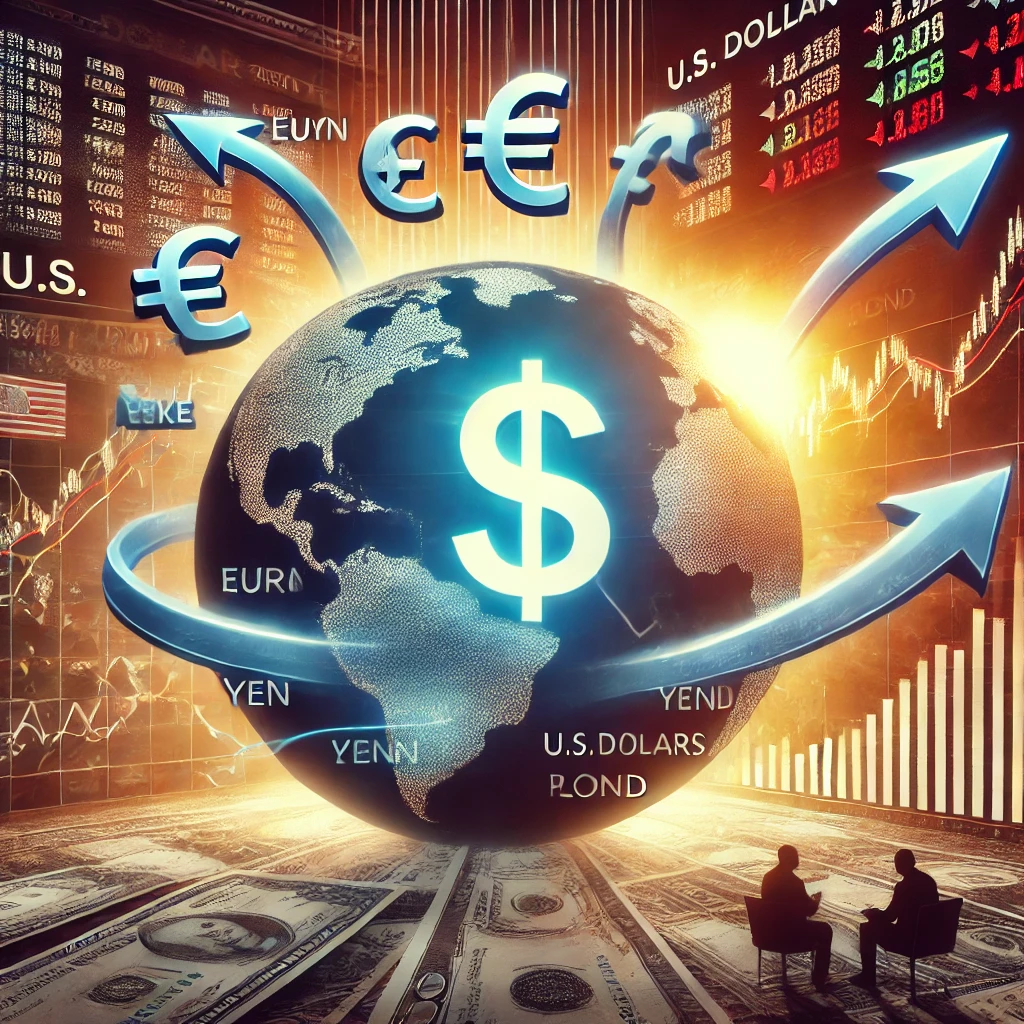
In the global financial ecosystem, the U.S. dollar plays a pivotal role. From international trade to investments, the dollar often acts as the common medium. One of the critical aspects of the stock market, especially for global investors, is the conversion of currency into U.S. dollars. Understanding why this conversion takes place can shed light on the complexities of international finance, as well as the influence the U.S. dollar has on the global market. This article dives into why currency conversion to dollars is integral in stock markets and how it benefits investors and the market as a whole.
1. The Dollar’s Dominance in Global Markets
The U.S. dollar has long been regarded as the world’s primary reserve currency. Over 60% of all foreign currency reserves are held in U.S. dollars, and it serves as the standard for pricing a wide range of commodities, including oil and gold. Stock exchanges, particularly those in the U.S., predominantly transact in dollars because it simplifies the process of valuation and pricing. When trading in foreign stocks or investing in U.S.-based companies, foreign investors convert their home currency into dollars to buy shares or other financial instruments.
This practice is particularly prominent in major stock exchanges like the New York Stock Exchange (NYSE) and the Nasdaq, which are among the largest in the world. Since many companies listed on these exchanges are multinational corporations, pricing in U.S. dollars ensures uniformity, making it easier for global investors to compare and evaluate stocks.
2. Mitigating Exchange Rate Risks
Currency conversion is not just about convenience but also about managing risks. Exchange rates fluctuate due to various factors, including geopolitical events, interest rate changes, and economic performance. By converting to dollars, international investors can reduce the currency risk associated with frequent fluctuations in the value of their native currency against the dollar.
For example, if an investor from the Eurozone buys U.S. stocks, they must first convert their euros into dollars. Should the value of the euro drop relative to the dollar, the investor would lose money when converting back, irrespective of how their stock performed. However, by dealing in dollars upfront, investors can more effectively manage this risk since the U.S. dollar tends to be more stable compared to other currencies.
3. Facilitating Liquidity and Efficiency
Another reason for currency conversion to dollars is liquidity. The U.S. stock market is the largest and most liquid in the world, meaning that trades can be executed more quickly and efficiently than in other markets. Since the dollar is universally accepted and highly liquid, it makes it easier for foreign investors to move their capital in and out of U.S. markets seamlessly.
Moreover, U.S.-listed stocks attract millions of investors globally, leading to high trading volumes. The dollar, as a universal currency, ensures that these transactions occur without the complications that can arise from dealing in multiple currencies. This efficiency makes the U.S. market more attractive for foreign investors, further solidifying the role of the dollar in global trading.
4. International Transactions and Standardization
Global corporations and institutional investors often operate in multiple markets. For example, a European company might have operations in the U.S. and wish to buy stock in an American competitor. Converting to dollars simplifies these transactions because the U.S. dollar is the most widely used currency in international trade.
Additionally, global financial institutions like hedge funds, mutual funds, and pension funds manage portfolios that include assets from various countries. They often denominate their assets in dollars, which provides consistency and simplifies accounting processes. This standardization is essential for reducing operational complexity, ensuring compliance with regulations, and maintaining clear financial reporting.
5. Hedging Strategies and Speculative Investments
Converting currency into U.S. dollars also benefits those engaging in hedging strategies and speculative trading. Currency volatility can either enhance or diminish the returns on investments, and many investors prefer the stability that the U.S. dollar offers. Hedging allows investors to protect themselves from adverse currency movements by locking in exchange rates. Since the dollar is a central player in the currency market, investors often use it in hedging strategies to safeguard their portfolios from potential losses.
In speculative investments, traders might also convert currency into dollars to bet on both the stock market and the currency market. For example, an investor might anticipate that both the value of the U.S. dollar and a specific stock will rise, thus profiting from both movements.
6. U.S. Economic Stability and Global Trust
One of the main reasons for the conversion to U.S. dollars is the stability of the U.S. economy. The U.S. government has a long history of economic stability, and the dollar remains a trusted currency in times of crisis. Even when global markets experience turmoil, the U.S. dollar is often seen as a “safe haven.” This trust in the U.S. economy encourages international investors to convert their currency into dollars to mitigate risks and gain access to more secure investments.
Conclusion
The conversion of currency into U.S. dollars in the stock market is a product of the dollar’s global dominance, the need to manage currency risk, and the liquidity and efficiency of U.S. financial markets. As the global economy continues to evolve, the U.S. dollar’s role in international finance remains critical, ensuring that investors from all corners of the globe can participate in stock markets with greater ease and fewer risks.
Here’s a shorter version of the table with links:





